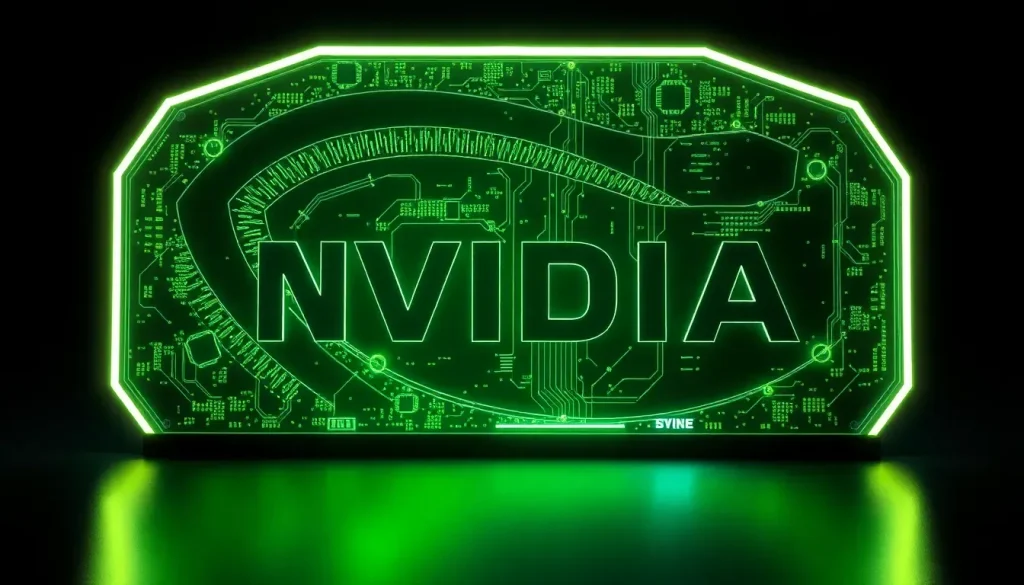NVIDIA warns Trump China is close to US in technology race

The technological rivalry between China and the United States has reached a critical point, with NVIDIA's CEO, Jensen Huang, raising urgent concerns. His statements highlight a narrowing gap in semiconductor technology between the two nations, indicating that the U.S. must step up its game. Huang warned that China is merely nanoseconds away from catching up to the U.S., with Huawei emerging as a fierce competitor in the semiconductor market.
Such assertions come at a pivotal time for NVIDIA, which is navigating the complexities of maintaining its foothold in China amidst escalating tensions between the two governments. After months of delays caused by U.S. export regulations, the company is eager to resume shipments of its AI GPU H20 to local customers, provided they remain interested in the product.
China's Reluctance to Engage with U.S. AI Hardware Companies
China is strategically distancing itself from American AI hardware companies, moving towards greater technological independence. This shift is evident in Huang's remarks during the BG2 podcast, where he argued that selling in China would bolster U.S. interests by promoting technology dissemination globally and enhancing America's economic success and geopolitical influence.
However, the reality is that China is keen on achieving self-sufficiency in technology and is reluctant to finance the U.S. government. As a result, Chinese companies are increasingly abandoning American hardware in favor of domestically produced alternatives. This ongoing tug-of-war between the two superpowers creates a complex landscape for companies like NVIDIA.
- Huawei is already distributing its Atlas 900 A3 SuperPoD with Ascend 910 chips, optimized for local software.
- By 2027, Huawei plans to launch new generations of chips that could rival or even surpass current performance levels.
- Huang mentioned that NVIDIA once held a staggering 95% market share in China, but this dominance appears to be declining, with estimates suggesting it may have fallen below 50%.
The advancement of Chinese tech companies is not limited to state-owned enterprises. Major hyper-scalers such as Baidu, Alibaba, Tencent, and ByteDance are investing heavily in developing their own chips. For instance, Tencent has announced plans to migrate its infrastructure to domestically manufactured chips, indicating that NVIDIA is facing significant pressure in the Chinese market.
NVIDIA Sounds the Alarm: "They Are Just Nanoseconds Away from Us"
The pressure on NVIDIA has intensified, yet the company remains committed to participating in the Chinese ecosystem with select products, such as the H20, to maintain connections with its clients. Huang has not shied away from acknowledging the formidable competition posed by Chinese companies, stating:
“We are up against a formidable, innovative, ambitious, dynamic, and less-regulated competitor,” referring to the quality of Chinese engineers and their work culture. He further emphasized, “China is just a few nanoseconds away from the United States, so we must compete.”
He also pointed out that Beijing is signaling a desire for openness, stating:
“They [China] publicly declare that they want China to be an open market, where companies can come and compete… and I believe and hope we will return to that situation.”
This message contrasts sharply with the restrictive policies of both Washington and Beijing, suggesting that NVIDIA aims to navigate a delicate path between the two. Huang's statements raise a fundamental question: what holds more weight, national security or the global influence of American technology? The answer will not only shape NVIDIA's future but also the entire chip industry, as China continues to carve its path while publicly advocating for cooperation.
The Implications of U.S.-China Relations on Global Technology
The complex relationship between the U.S. and China is having profound implications for the global technology landscape. As both countries continue to invest heavily in their semiconductor industries, the competition is becoming increasingly fierce. The potential consequences of this rivalry are far-reaching, affecting everything from innovation to market dynamics.
- Technological Innovation: The competition could spur rapid advancements in semiconductor technologies as both sides strive to outdo each other.
- Market Dynamics: Companies in both nations may find themselves needing to adapt quickly to changing regulations and competitive pressures.
- Global Supply Chains: The tensions could lead to a reconfiguration of global supply chains as companies seek to mitigate risks associated with bilateral trade disputes.
Future Prospects for NVIDIA and Chinese Competitors
The future of NVIDIA and its Chinese counterparts remains uncertain as geopolitical tensions continue to evolve. The company's ability to maintain its market position will depend on several factors:
- Adaptation to Regulations: NVIDIA will need to navigate the complex regulatory landscape affecting its operations in both the U.S. and China.
- Investment in Innovation: Continued investment in research and development is crucial for remaining competitive against rapidly advancing Chinese technologies.
- Strategic Partnerships: Building alliances with local firms may help NVIDIA strengthen its foothold in the Chinese market.
This delicate balance between competition and collaboration will be essential for both NVIDIA and Chinese technology firms as they seek to thrive in an increasingly interconnected yet divided global market.
For further insight into the ongoing developments in this space, consider watching this relevant video:




Leave a Reply